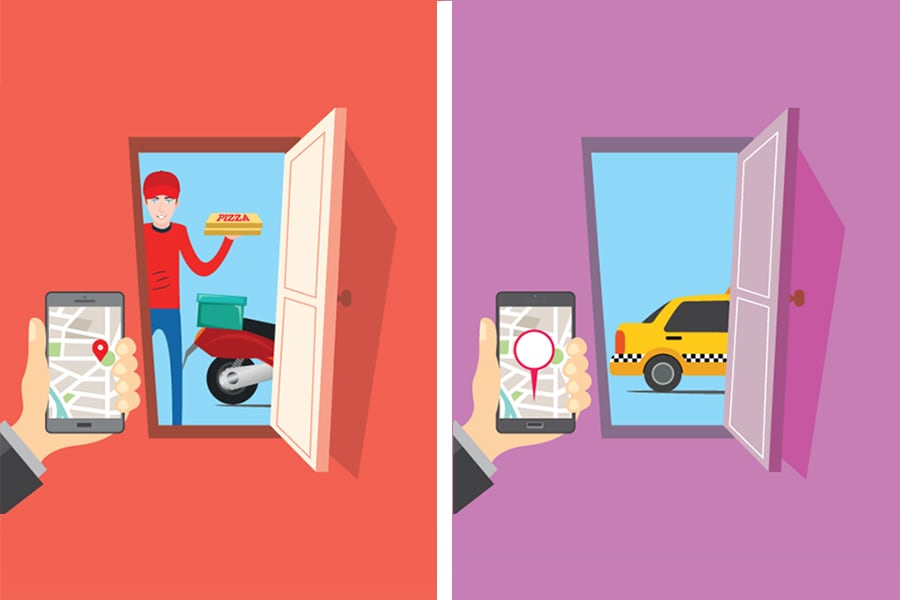
Capital a myth in the world of disruption...
Disruption came with mobile revolution which has given emergence to new business models like 'Sharing Economy' and 'Gig Economy'. Some of these reforms are not only challenging existing businesses but also giving regulators a challenging time
 The rise of mobile internet fuelled growth of ecommerce companies and gave impetus to innovative companies like Uber
The rise of mobile internet fuelled growth of ecommerce companies and gave impetus to innovative companies like Uber
Image: Shutterstock
As the popular saying goes, ‘Every crisis is a blessing in disguise.’ So has been the post phase after 2008 crisis which witnessed the growing popularity of the term ‘sharing economy’. During this period, many Unicorn startups came into existence. The rise of mobile internet fuelled growth of ecommerce companies and gave impetus to innovative companies like Uber and Airbnb. Their journey hasn’t been a smooth ride ever since their founding year. Both Uber and Airbnb have battled with regulators thus reforming the taxi and hotel industry.
Let’s take a look at how ‘sharing economy’ has changed some of the basic principles in business. From a monetary point of view, traditional finance focuses on businesses making capital expenditure to grow. The more fixed assets on your balance sheet, the easier it is to get access to credit for expansion. Most of the lending models in academic world concentrate on these parameters to assess credit worthiness of the borrower. These models take into account factors like operational efficiency, cash conversion cycle, free cash flow, asset turnover ratio and much more. The world’s most popular regulatory framework for Banks i.e. BASEL norms too takes into account these fixed assets, sales revenue, VaR and more areas to ascertain banking structure - minimum risk assessment tool.
Disruption across industries is all set to make capital a myth. Think of the world’s renowned company ‘Uber’. It does not own a single vehicle of its own. One of the world’s most distinguished name in travel and hospitality ‘Airbnb’ started business without owning a single service apartment or a hotel. Similarly, the world’s largest retail company ‘Amazon’ does not own a store of its own until recently when it opened Amazon Go. This disruption came with mobile revolution which has given emergence to new business models like ‘Sharing Economy’ and ‘Gig Economy’. Some of these reforms are not only challenging existing businesses but also giving regulators a challenging time. This is evident with the recent challenges to Uber and the entire dilemma of what category does an Uber driver get classified – self-employed or salaried.
Similarly, the entire debate about Google tax has been as interesting as a transfer pricing case. However, the world of finance is evolving at a much faster pace than ever before. Under this new business model of the companies like Uber or Airbnb or Amazon don’t have a traditional B2B or a B2C model. For these companies both the service user and the service provider is a customer. The companies have created algorithm to incentivise the service providers to boost supply and incentivise the user of service to incentivise and create demand. This network model where a software creates supply and demand with an aim to boost transactions on a platform is quite unique. This model is replicated in Retail, Travel, Hotel industry as of now but soon would be adopted in Fast Food Chains, ERP, Auction etc. The only constraint in this model is the gestation period for creating supply. This limits its application in Real Estate, Agriculture and other businesses where supply side constraints are there.
The new business model where engagement is the key driver for business is also being experimented in entertainment business by Netflix and Amazon Prime Videos. This concept of creating a market place for sharing economy can solve many social problems like parking space, fair pricing of bumper crop in agriculture, urban mobility, housing etc.
The coming decade will see many changes in the finance sector which would be challenged leaving others obsolete. The need of the hour is to become an agile learner as some of these innovative business models will bring in large scale job losses in traditional business sectors and new jobs will be created. Probably, unlike in past where core competenece is what companies and individuals were trained to focus on; will now change on ability to learn-unlearn-relearn. This is true for all stakeholders in business. Come to imagine the most regulated market in the world is Taxi and Fleet Management which is where Uber has been able to create a massive disruption and not in one country in better part of world to say the least. Similarly, to open a hotel it takes so many regulatory approvals but Airbnb could once again create disruption.
In times to come, all you would need is a brilliant idea and a bit of programming skills to do business. No capital…just an innovative idea can make an Elephant dance.
The article is contributed by Prof. Dr. Suyash Bhatt – Professor - Finance & Dean Entrepreneurship & Innovation at Prin. L. N. Welingkar Institute of Management Development and Research (WeSchool), Mumbai Campus
[This article has been reproduced with permission from Welingkar Institute of Management Development and Research (WeSchool)]




